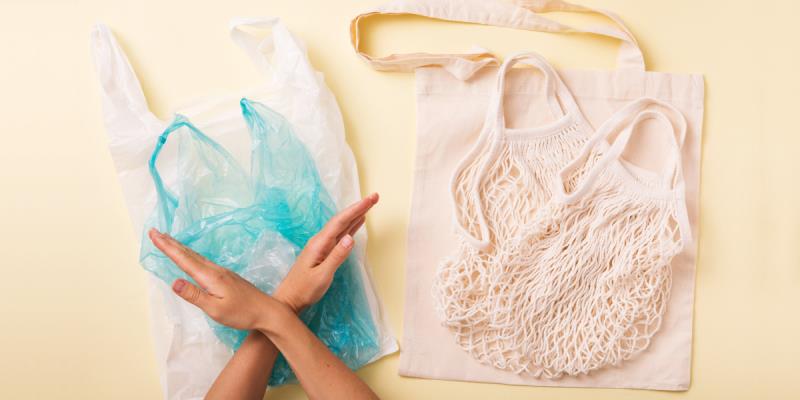7 Ways to help protect the ocean from your home
Published on Fri Jul 3 2020 in Lifestyle
New Zealand has many breathtaking landscapes. From forests and grasslands to mountains and wetlands, there is so much beauty here to enjoy. However, our most important natural wonder may be the ocean that surrounds our beautiful nation.
Ocean ecosystems around the world are suffering the ill-effects of pollution. Like many Kiwis, you may be looking for ways to help clean and protect our oceans for generations to come. While picking up litter at the beach is one way to help, there are also many ways to do so right from our own homes.
Here are 7 ways to help protect the ocean from your own home:
1. Use fewer plastics
Plastic waste is a big problem, especially for the ocean. As much as eight tonnes are dumped into the ocean every year. It creates large floating “rubbish patches”, gets eaten by sea life, and has even been found on the ocean floor1.
One way to help is to cut down on the amount of plastics (especially single-use ones) that you use at home. Try swapping plastic items for reusable versions made from more sustainable or durable materials where you can.
2. Recycle with care
Reducing and reusing are the first steps for keeping waste out of the ocean. Next comes recycling, but it’s important to do this carefully. Putting items that cannot be recycled into this bin can contaminate entire batches, meaning they’ll be sent to a landfill instead.
Take a moment to review what can and can’t be recycled in your local area. This information can usually be found on your council’s website. They may also have links to organisations that recycle items that council cannot.
3. Conserve water
Water used in homes is later sent to treatment plants where it’s cleaned and then put back into oceans, lakes or rivers. However, using too much water can overwhelm these systems. Waste water may not be properly cleaned, thus introducing harmful pollution into the ocean.
Conserving the amount of water you use at home could help. Try taking shorter showers, turning off the tap when you brush your teeth, fixing leaks and using rain barrels to water the garden.
4. Be careful what you flush
Treatment plants are able to filter a lot of pollution from our water. However, sometimes harmful chemicals still slip through and make their way into the ocean.
Before you flush things like old medication, paint or harsh chemicals, find out if it’s safe to do so. There may be safer ways to toss these products that will help ensure they do not harm sea life or contaminate the water.
5. Don’t use chemicals in your garden
Many people take pride in keeping their garden lush and green. However, using pesticides, weed killers and fertilizers to do this may be harming the ocean. All of these can be washed away by rain or the garden hose, and if you live near an ocean, they’ll probably end up there.
Instead of using chemicals and fertilizers, try more organic ways of gardening instead. Composting could help keep plants healthy while cutting down on food waste. There are also many natural ways to keep pests out of gardens, such as garlic sprays or sprinkling egg shells at the base of plants.
6. Understand your carbon footprint
Carbon dioxide doesn’t just pollute the air we breathe. As much as one third of man-made CO2 ends up in the ocean, creating a more acidic environment that harms all types of sea life2.
There are many ways to help lower your carbon footprint at home. Big changes may include driving less and eating more vegetarian meals. You can also use energy efficient light bulbs and appliances, wash clothes with cold water, and adjust your aircon temperature by a few degrees.
7. Donate to an ocean charity
Any step that you take to help protect New Zealand’s environment could make a big difference. If you don’t live near the ocean, but want to do more, making a donation could go a long way to helping.
Ocean cleanup groups, conservation charities and educational foundations often need funds to get their important work done. Any donation – large or small – could help fund projects that are protecting our beautiful oceans!
Did you know that funerals can be eco-friendly, too? Read more about making your final farewell better for the environment.
About Author: Momentum Life is a leading provider of Life insurance and Funeral insurance in New Zealand.
1. National Geographic, Eight Million Tons of Plastic Dumped in Ocean Every Year, 13 February 2015
2. National Geographic, Ocean acidification, explained, 7 August 2019
The content provided in this article is for information purposes only. The information is of a general nature and does not constitute financial advice or other professional advice. To the extent that any of the content constitutes financial advice, it is limited to Momentum Life products only and does not consider your specific financial needs or goals. You should consider whether the information is appropriate for you and seek independent professional advice, if required.
All product information is correct at the time this article was published. For current product information, please visit the Momentum Life website.
